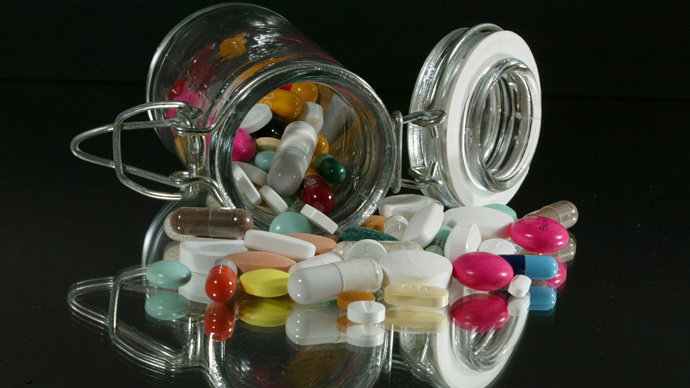‘Parkinson’s-fighting drugs can make you more selfish’ – study

Drugs used to treat Parkinson’s disease and depression have been found to affect users’ morality, new research suggests.
Dopamine-enhancing drugs often prescribed to Parkinson’s sufferers were found to make healthy people more selfish, while anti-depressants were found to make people more protective of others.
Psychologists at Oxford University say the difference in behavior was noticeable from a single exposure to the drug, raising questions about how stable a person’s moral values are.
Research leader Dr. Molly Crockett told the Guardian the drugs were having a potentially life altering effect on people, but clarified they would not turn “a healthy person into a criminal.”
The study involved 175 participants, 89 of whom were given either the serotonin-boosting anti-depressant citalopram or a placebo and 86 of whom given either levodopa or a placebo.
Participants were split into pairs, with one person designated a “decider” and the other a “receiver.”
READ MORE: Leaked TPP document shows US favoring Big Pharma
The decider was given the opportunity to earn cash by giving an electric shock to the receiver, however the money could also be paid to prevent shocks. The shocks were mildly painful and matched to each person’s pain threshold.
Psychologists discovered that those given serotonin-boosting anti-depressants offered to pay 60 pence (94 US cents) to stop themselves being shocked and 73p to stop someone else receiving one.
Those who took a placebo offered to pay an average 35p to stop themselves getting an electric shock and 44p to stop someone else receive one.
The results for dopamine-enhancing levodopa were the complete opposite, with people on average delivering 10 more shocks to others during the experiment than those given a placebo.
“The dopamine drug made people more selfish … Most people show this pattern where they think it’s worse to harm other people than to harm oneself. That’s abolished by the drug,” Crockett said.
READ MORE: 'Profits over public health': Secret TPP Healthcare Annex published by WikiLeaks
Crockett linked the impact of levodopa to the fact some Parkinson’s sufferers who take the drug go on to develop gambling addictions and compulsive sexual behavior.
“The drugs have consequences that reach out into the world beyond the patient,” she said.
“The central message is we need to have more research into how these drugs affect behavior, both in healthy people and in people taking them for disorders.
“We’re not transforming someone from a healthy person into a criminal or anything like that. But in aggregate we make decisions multiple times a day and they can shape our lives,” she added.
Psychologists predict in the future tests could be developed to determine whether a person’s decision-making has been radically altered by a drug.












